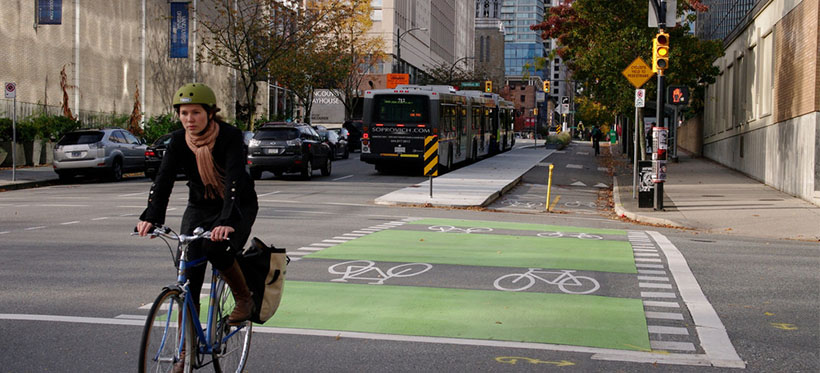
According to a study on global traffic patterns , Vancouver has the 203rd worst traffic in the world. In an effort to solve the congestion issue in city, Vancouver Mayoral candidate Wai Young proposed to remove separate bike lanes and demolish the Georgia and Dunsmuir viaducts if she gets elected. But are these infrastructures really the ones to blame?
Vancouver Magazine invited UBC Civil Engineering and Community and Regional Planning Professor Alex Bigazzi to the conversation on transportation. Bigazzi disagrees with Wai Young’s argument and suggests that population growth has a bigger impact on congestion. On the same note, Bigazzi is not optimistic about the city’s planned demolition of the viaducts, which will be replaced by new road network to expand the northeast False Creek area.
“The effect of demolishing the viaducts will be small in the big picture,” Bigazzi says, “the much bigger effect is going to be changing land use.” He argues that population growth in the planned new neighborhood will add more private cars to the roads which will be a larger contributor to the congestion problem. On that note, he believes that increasing road space for other road users such as cyclists and buses will actually increase transit efficiency, providing a better solution to the congestion problem. If transportation is referred to moving people and goods instead of moving private vehicles, then he asserts that there is really no ideological conflict war on transportation.
